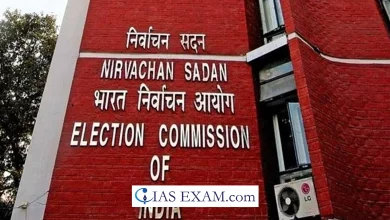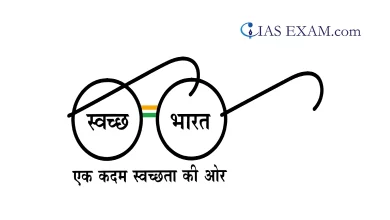Need for the Reinvention of United Nations
[GS Paper 2 – International Relations, Inclusive Growth and related Issues]
Context – Addressing the United Nations General Assembly Secretary General Antonio Guteres said that the “world is in big trouble, gridlocked in colossal global dysfunction, even the G20 is in the trap of geopolitical divides”.
In the present global scenario, we need to create mechanisms of dialogue to heal divides and only by acting as one, we can nurture fragile shoots of hope for a coalition of the world.
Evolution of UN
- The first intergovernmental organization was the League of Nations which was setup in 1920 in the aftermath of the first world war. The aim of the organization was to promote international cooperation and outlived its utility with World War II.
- In today’s time, the United Nations can claim to be the only international organization where all the world nations can discuss common problems and find shared solutions that can benefit all of humanity. 75 years since its inception, now seems to be time amidst rising conflict situations that we fall back to the very first principles of the Charter.
Why is the UN at an inflection point?
- A Club outside UN: The goals of a cooperative cooperative international climate club to accelerate climate action was endorsed by the G7 Summit held in June and this was outside the purview of the United Nations.
- Non Working of WTO: The WTo and its dispute settlement mechanism has been rendered inconsequential without the quorum of its member countries.
- Failed promises: The G7 countries had promised to provide funds for climate actions at Rio in 1992 owing to their roles in aggravating the situation. The promises have never been fulfilled despite another promise of providing atleast $100 billion dollars per year been made in 2009.
- The China challenge: The Chinese Government in their quest to achieve global superpower status has created numerous rival sets of multilateral institutions such as the BRI (Belt and Road Initiative) which seeks to achieve policy, infrastructure, trade, financial, and people to people connectivity by building a new platform for international cooperation to create new drivers of shared development. The initiative covers almost half of the global population with an investment of almost $930 billion which one-third of the global GDP.
- Challenge of non-traditional security: A conceptual frame responding to a rapidly urbanizing world is being developed by China’s Global Development Initiative 2021, and linked Global Security Initiative, 2022 . Its forums aim to provide digital governance and non- traditional security, which the existing international system has not covered.
- A divide within the UN: The deepening divide between the Atlantic Countries and the Russia-China nexus has become more significant. iIt caters to the diffusion of wealth, technology and power. The other countries are now capable of not taking sides and are looking for leadership within the United Nations, for what the UNSG characterized as a “coalition of the world”.
Measures to be Taken
- Reject the Binary Approach: Major powers and their strategists see the world in binary terms around rules.The kind of rules needed for human wellbeing and whether principles would serve the purpose better or not is a question in the multipolar world.
- Adjusting the competing Institutions: The present is the perfect times for a big idea that keeps away from both the current multilateral focus on global rules, amount of aid and inviolability of IPR’s while also recognises a role for competing institutions as countries can now secure the best terms themselves without bargaining.
- Universal Wellbeing at the core: Similar to the ‘Rio Principles’ which continues to guide our climate change actions, ‘Vasudhaiva Kutumbakam’, or ‘world as one family’, emphasizing on comparable levels of wellbeing should be the core of a set of universal socioeconomic principles for a dialogue between the countries.
- Climate as uniting force:The Indian Prime Minister Narendra Modi has added a clearer societal purpose to flesh out a universal Civilizational principle to the current global consensus around equitable sustainable development. The Prime Minister also emphasized Lifestyle for Environment’ seeing climate change as a societal process and combating it devoid of trade-offs characteristic of the Climate Treaty while also offering India’s payments and linked digital ID technology without any of the IPR restrictions..
- Addressing the common concerns: The focus of a much slimmed down United Nations squarely to human wellbeing, and not as an add on will shift in terms of the requirements of the majority global populations in place of the interests and concerns of the powerful.
- India’s Role: India is presented with a historic opportunity with its presidency of the G20, UNSC in 2022 and the SCO in 2023 and bring about wholesome changes at a time when the major powers are not even talking to each other while India alone is interacting to them being recently becoming the fifth largest economy of the world.
Conclusion
The United Nations, however dysfunctional, is the only global platform for world governance. No country would gain by falling to the UN. Even if we dissolve the UN, there is no alternative than reinventing the UN again. India’s and global interest lie in preserving the UN rather than dismantling the UN.





.png)



